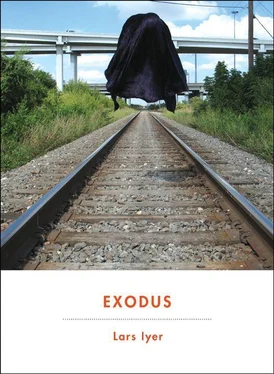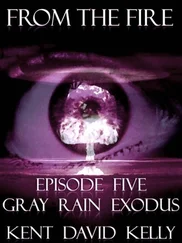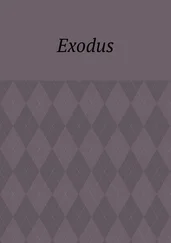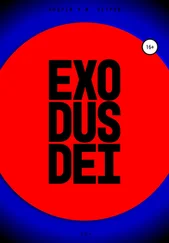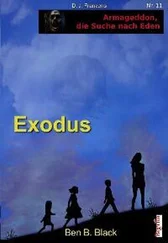The suburbs are so thick in Reading, W. says. So condensed . They’re almost real. They’ve almost managed to pass themselves off as reality.
W. reminds me of Philip K. Dick’s gnostic vision. For Dick, the world as we see it is a stage-set. It’s unreal. History ended in AD70, when the Romans sacked Jerusalem, and destroyed the Temple. For Dick, this horror has never stopped happening, W. says. What we know as history is an illusion overlain on perpetual injustice. Jerusalem is eternally being sacked. The Temple is eternally being destroyed.
In Reading, history ended in the 1980s, W. says. In Reading, the council houses are eternally being sold off. Housing estates are eternally being built. Golf courses are eternally opening up. The corporations are eternally moving in …
Yew trees. A grassy expanse. Reading University campus.
To think there’s a university in the midst of it all, W. says. To think there’s a campus on the edge of such a town, like a mall or a leisure complex. Like a DIY superstore …
And to think there’s a department of philosophy in the midst of it all, W. says. To think there’s some pretence at thinking in Reading.
Welcome packs. Book flyers and publishers’ catalogues. A timetable of parallel sessions, and a booklet of presentation abstracts. Haven’t we vowed never to attend this kind of thing again? W. says, fixing on his nametag.
Professors like great walruses, in elasticated trousers. Swarms of young lecturers, looking to impress. Looking to network ! Tweed everywhere. Wall-to-wall tweed. Tweed jackets and trousers. Tweed in the head!
We need a panic room, W says. A war room! And we need a general strategy. In the meantime … — ‘Keep your head down. Talk to no one!’
W. recognises the plenary speaker as an ally. Young academics throng around him. — ‘He’s drowning!’, W. says. ‘We can’t just leave him there!’
In the pub, we wait for our plates of sausage and mash. — ‘You know they hate you’, W. says to the plenary speaker. ‘They hate us, God knows, and they hate you, too’. — ‘Who hates me?’, the plenary speaker asks. — ‘Everyone. Everyone here’, W. says. — ‘ I don’t think they hate me’, the plenary speaker says. — ‘They do! They hate us, and they really hate you’.
‘They hate thought! W. insists. ‘Don’t you see? They hate thought, and want to drive all thought away!’ — ‘Why did they invite me, then?’, the plenary speaker wonders. It’s a mystery, we agree. Perhaps there’s still some instinct among the Reading philosophers concerning what they lack, W. speculates. Perhaps they feel some residual shame about their inability to think.
He feels shame, W. tells the plenary speaker. He’s been trying to teach me the meaning of shame, he says. But how can you teach a grown man shame? If only W. had known me as a child, what I might have been! Give us a child till the age of seven, and he’ll be ours for life: that’s the Jesuits, W. says. Give us a fully grown adult idiot, and he’ll be our scourge for life: that’s what he’s learnt, W. says.
Sausages and mash arrive on big oval plates. It looks disgusting, we agree, but what can you expect for £3.95? Eat up! we urge our speaker. He needs to keep up his strength! After all, very soon he’ll have to go back to the conference! We’ll protect him, we tell the plenary speaker. We’ll flank him like the president’s secret service bodyguards. We’ll keep our sunglasses on and speak into earpieces. — ‘The package is in the building’, we’ll say. ‘The package is about to give his presentation’.
Fog descends as we head back to the campus. It’s as thick as the cloud on Mount Sinai, when Moses went up to meet God, W. says. Moses descended with the Tablets of Law, W. says — what will we bring back with us?
We’re hopelessly lost. The plenary speaker’s worried. What about the conference meal? He’s supposed to be sitting at the high table. — ‘Never mind the high table!’, W. says. The plenary speaker’s too full of sausage and mash to be able to eat anything else, for one thing. — ‘You’ve a real appetite!’, W. says to him, impressed.
It’s a verdant campus, we agree. Very lush. The Thames Valley’s known for its humidity. It’s very bad for asthmatics. I developed asthma as a child, I’ve told W. that. And eczema. — ‘And lice’, W. says.
In the thick darkness: that’s where God was waiting for Moses, W. says. In the thick darkness: that’s how God appears to the mystic, Gregory of Nyssa said. The mystic receives a dark vision of God. But what do we see? Not God, at any rate. Barely even each other! It’s a real pea-souper , we agree, speaking like the commoners in Brief Encounter . Cor blimey, guv’nor.
The plenary speaker feels unwell. Our ally feels unwell! What have we done to him? we wonder. How can we make reparation?
We tell him of our Kierkegaard project, our collaborative endeavour, for which we are compiling voluminous notes. We tell him about the intimate link we expect to discover between Kierkegaard and contemporary capitalism; about the Danish philosopher’s despair and our despair.
The plenary speaker is silent. We need to say something else! Religion! What does our speaker think about religion? W. asks. Does he, like W., have a sense of the urgency of the question of religion? The plenary speaker says he has no particular thoughts about religion. What about despair, then? What does he think about despair?
Silence again. Do we drink? the plenary speaker asks us. He drinks, he says. He drinks every night. Do we drink?: we muse. Of course we drink! Whatever can he mean, Do we drink!? What kind of question is that? What are we being asked? Do we drink? we wonder. Have we ever drunk? Ah, but what do we know of drinking, and what could we know? And about despair, about religion: what could we know about those topics, either?
The plenary speaker falls back into silence. — ‘Marx and Kierkegaard’, W. says finally. ‘We intend to think the conjunction of Marx and Kierkegaard. They were born in the same year, you know’.
The plenary speaker’s feeling really ill now. The fog’s thickening. We need to stay close! Keep a head count! And it’s darkening, too. Are we really going to meet our God? Do you think we’ll receive the Tablets of Law? — ‘Go on, say something profound’, W. says to the plenary speaker.
The slow train to London.
‘We’re in the suburbs of a suburb’, W. says. ‘In the suburbs of a suburb of a suburb …’
I point out my old school as we pass. I had the worst of schooling, I tell W. No one knew anything: we didn’t know anything; our teachers didn’t know anything. The blind led the blind. The blind stabbed out the eyes of the sighted. They stabbed out our eyes , I tell W.
I point out the warehouse where I worked as a contractor when I left school. It was the worst of jobs, I tell W. No one spoke to anyone else. Nothing meant anything. Our jobs were a mockery of jobs. Companies employed us half-time, quarter-time, changing our hours week by week. Labour flexibility, they called it. Underemployment, that’s what we called it.
There are still bits of countryside left behind by the suburbs, we notice from the train. Forlorn horses in tiny fields. Rabbits hopping across a golf course. Rats crawling along a wall by the sewage treatment works.
W. pictures me as a teenager, cycling out to every green patch I could find on the map. He pictures me making my way through fir plantations to the scrap of woodland fenced off by the Ministry of Defence, where solders used to come to train for future wars. He pictures me listening out for artillery fire, and hearing nothing but the wind in the trees and birds singing.
Читать дальше
